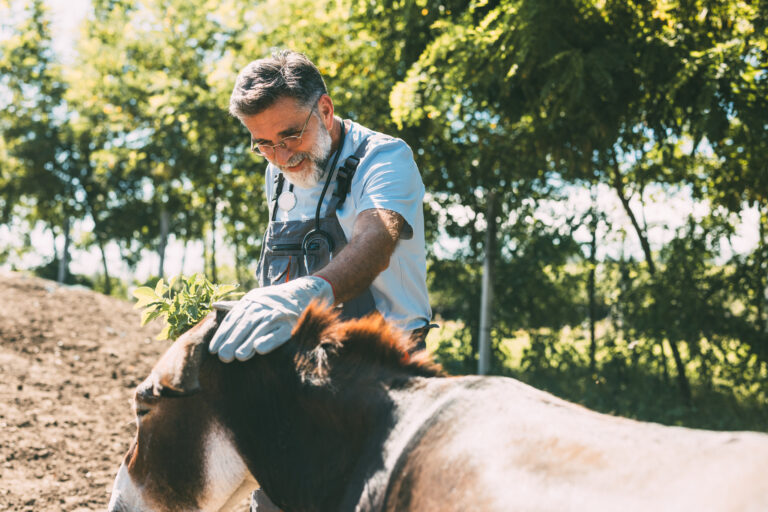
Equine veterinary medicine has slowly been changing over the last few decades, as multidoctor private referral hospitals are juxtaposed with large numbers of solo practitioners. In the 2024 AVMA AAEP Report on the Economic State of the Equine Veterinary Profession, more than half of respondents were solo doctors. Small practices have increasingly been finding price increases on pharmaceuticals and medical supplies hard to absorb.
Marsha Heinke, DVM, EA, CPA, CVPM, reported in her 2020 AAEP Convention presentation that the average cost of professional services rose to 29.25% of revenue for ambulatory practices, an increase of about 3.5% in a decade. Meanwhile, those costs remained stable in hospital practices at 24.3% of revenue. It is uncertain whether this is a result of volume discounts for larger practices, failure of small practices to mark up prices as their expenses rise, or both.
Price Comparison Services
To purchase necessary drugs and supplies at the lowest possible cost, some practices have joined services that bundle pharmaceutical distributors’ offerings on a website for comparison and price transparency, such as Vetcove, the official purchasing platform of the AVMA and AAEP. This free site allows veterinarians to research and buy supplies, pharmaceuticals, equipment, diagnostics, and biologics from multiple sources.
Buying Groups for Veterinary Supplies
Other practices have found savings on drugs and supplies by banding together in buying groups. Buying groups use the power of market share to drive lower prices for higher quantities. Multiple practices’ buying volume greatly exceeds that of a single practice, and practices can often negotiate volume discounts. Veterinary Study Groups (VSG) pioneered the concept many decades ago, and members of Veterinary Management Groups (VMG) subsequently obtained favorable pricing by negotiating with distributors and manufacturers. You can learn more about the VSG program at https://www.myvmg.com/membership/purchasing-program.
Equine Purchasing and Inventory Company LLC (EPIC) was founded in 2018 by an initial group of eight practices. It is a member-owned cooperative of independent, equine-majority practices with the goal of lowering the cost of goods, services, and equipment for members. EPIC now consists of more than 120 practices, most of which are small, with 70% having only one full-time equivalent veterinarian. The cooperative offers monthly virtual educational webinars on best practices for inventory management. It also holds an annual educational seminar on inventory management and business practices. You can learn more about EPIC at https://epiccooperative.com/.
Relationships With Industry Partners
Although lower prices have clear and indisputable value, veterinarians should remember that the relationships they have with their industry partner territory representatives and technical services veterinarians are also valuable. Learning of impending backorders, new research, and new drugs coming on the market has a distinct value, as does having a resource to call about off-label use or when an adverse event occurs. Being able to call your rep during windshield time on a long day to place an order makes your life easier. Relationships matter, and professionals working as partners in the equine veterinary industry play an important role in your practice’s success.
By using all available resources, such as purchasing platforms, buying groups, and industry partners, veterinary practice owners can build the best systems for handling their drug and supply needs.
Related Reading
- Taking Control of Veterinary Inventory Costs
- The Business of Practice: Tips on Veterinary Inventory Control
- How to Turn Your Veterinary Equipment Into a Revenue Stream
Stay in the know! Sign up for EquiManagement’s FREE weekly newsletters to get the latest equine research, disease alerts, and vet practice updates delivered straight to your inbox.




